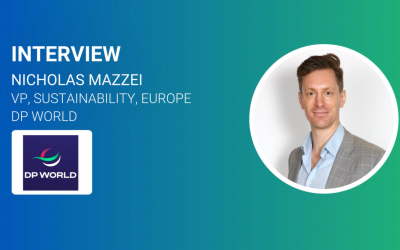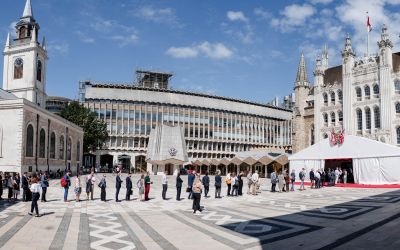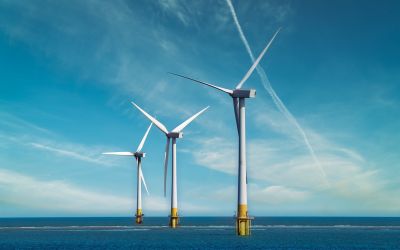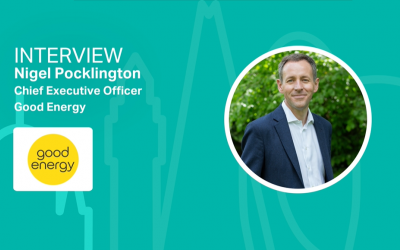Climate Finance and Trust
There are two key issues that need to be on everyone’s agenda throughout the next twelve months: climate finance, and trust. Further pledges on climate finance will build the trust needed for full cooperation between developed and developing countries, and allow successful negotiations to culminate in an effective international climate agreement.

It will come as no surprise to anyone that climate finance should be identified as one of the major issues for 2015. After all, the Green Climate Fund was set up precisely to unlock global finance and investment for both mitigation and adaptation. Funding the global response to climate change is a critical part of the global negotiations on climate change, and the Fund will play a leading role in support of the aim of keeping the average global temperature increase below 2°C.
Climate finance is already growing, although not fast enough – in 2013 just over US$240 billion was invested in new clean energies, up from $80 billion in 2005. But we need to trigger further massive investments, particularly in the developing world, and developed countries have pledged that concessional climate finance to developing countries should be significant, every year.
All of this climate financing will support a paradigm shift towards low-emission and climate-resilient development – something that we hope to achieve through innovative funding models and the deployment of new technologies. The Fund is also committed to spending 50 per cent of its resources on adaptation projects, with a particular focus on supporting those developing countries that are most vulnerable to the devastating impacts of climate change, such as small island developing states, least developed countries and African states.
This Fund will catalyse climate finance flows from the developed to the developing world. These flows will come from developed countries, but also from private investments, and indeed one of the innovative elements of the Fund is the focus on promoting private sector climate investment through our Private Sector Facility, identifying and helping to overcome barriers to investment so that private capital can drive transformational change. But we need deeply concessional public funds from developed countries, and this is what we are seeking in our resource mobilisation which remains open to additional contributors – pledges from contributing countries that will allow us to welcome funding requests in early 2015.
The good news is that some countries have already demonstrated their backing to the Fund. Other nations are preparing to follow suit with the size of their support commensurate with their responsibilities for climate change and their capabilities in respect to their economies. We confidently expect that by the time COP21 takes place at the end of 2015 in Paris, other countries will have declared their intentions to contribute to the Fund, and will have announced pledges.
Building trust
The Green Climate Fund is not the only piece of the puzzle of course. We need ambitious and progressive national strategies, as well as enlightened investors and banks, and various support systems. Most of all, we need political harmony between the countries that are part of the UNFCCC agreement that will need to be based upon trust. That brings me to the second key issue for next year’s agenda on climate change: how to build trust between countries – the trust that will allow us to overcome differences and commit to an ambitious international agreement where everyone can benefit.
It is easy to describe the international progress on climate change as lengthy. We often see only the roadblocks and the setbacks. We also see that developing countries expect that everyone will contribute fairly to solving this global problem – and that fairness is a prerequisite for trust.
But I am optimistic about the prospects for agreement. And that optimism comes precisely from my work with the Board of the Green Climate Fund.
The Fund has been set up as an operating entity of the financial mechanism of the UNFCCC. Put more simply, we are a joint endeavour between developed and developing countries – equally represented on our Board. There have been some tough negotiations about how to structure the Fund, about the balance of priorities, the principles, approaches, and rules that will govern our operations. We have had to balance the needs of all – from the small island states at risk of rising sea levels to the large developed countries. And progress has only been possible through sometimes hard-fought consensus.
But we have agreed all of the essential elements that were needed in order to open our initial resource mobilisation and open the Fund for business. The Fund is therefore not only a means to support global action on climate change; it is also already a good example of what can be achieved through international cooperation, when countries work together, and in doing so, they build trust.
The need for additional pledges
It is our success in achieving consensus to build a new financial institution from scratch that gives me confidence that on a larger scale the 2015 Conference of the Parties in Paris can move towards an ambitious deal that can save the world from the threat of damaging climate change.
In the meantime, we need to secure additional pledges from contributing nations to the Green Climate Fund, and we need to build greater trust between countries. Climate finance and trust: those two elements are inextricably linked. Pledges on climate finance will build the trust we need for an international agreement.








